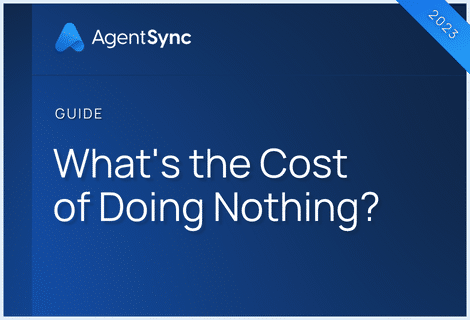

A note from AgentSync: The Commissioners’ Corner is an ongoing series where the AgentSync blog team invites state insurance commissioners to share their unique perspectives on industry regulation. While we often speak about a nationwide insurance perspective, each state has a culture of regulation specific to their state’s politics, attitudes, and demographics.
This blog aims to provide insight into state-level insurance concerns; it isn’t legal advice, a crystal ball on regulation, or an editorial endorsement by the AgentSync team.
This week’s Commissioners’ Corner is brought to you by West Virginia’s Insurance Commissioner, Allan L. McVey.
One of the most dramatic changes with insurance in the state of West Virginia in my lifetime has to be the privatization of our workers compensation system from a monopolistic state-operated fund. Prior to accomplishing that feat in 2005, the sole provider of workers compensation coverage to employees in the Mountain State since 1913 was the West Virginia Workers Compensation Fund, with the only exceptions being larger companies applying for the self-insurance option in the law here. Qualification for doing that is based on financial capability and only a small number of companies ever took advantage of that option as workers compensation claims can be a very long-term financial commitment. That option is still available, but an even fewer number of companies are taking that option as we now have a very robust and healthy market for the coverage presently.
There were a number of issues that caused our state to take such a dramatic move as totally revamping the system, all centering around financial issues. Legislation was passed in early 2005 that accomplished several things.
As of June 30, 2005, the monopolistic program was closed to new claims and the state dedicated various funding streams to pay off what has been dubbed the Old Fund, which are the legacy claims from the monopolistic Workers Compensation Fund. In addition, the legislation also established a mutual insurance company, BrickStreet, to insure the workers compensation exposure from July 1, 2005, forward in preparation for allowing them, along with other private insurers, to begin writing this line of insurance along with other commercial offerings.
The run-off of the unpaid claims liability from the monopolistic (Old Fund) fund prior to July 1, 2005, continues under the purview of the Offices of the Insurance Commissioner. BrickStreet provided the claims handling of the Old Fund claims and was the exclusive writer of coverage as a private company from July 1, 2005, until Jan. 1, 2008, when the competitive market opened for all other insurance companies to handle this line of coverage. Beginning Jan. 1, 2008, claims in the Old Fund have been handled by other third-party administrators and, during the current fiscal year, this fund is fully solvent, as our last actuarial numbers show.
As mentioned previously, this was a very dramatic move for our state to make, but it has proven to be highly successful. In addition to solving the dilemma of how to fund legacy claims for injured employees, transferring that risk to private industry for future generations was the right and correct decision to make. In addition to the Old Fund, the OIC is also responsible for the oversight of the following workers compensation funds, as well:
- Coal Workers Pneumoconiosis Fund (Black Lung)
- Uninsured Employers Fund
- Self-Insured Guaranty Fund
- Self-Insured Security Fund
- State Entities Workers Compensation Fund
All of these funds are operating very soundly and fully solvent, like the Old Fund. In addition, the private market, as mentioned, is thriving. Claims for employees are being handled very efficiently and aggregate base loss costs for employers have decreased more than 78 percent since this line of coverage was privatized 16 years ago. I would call that a win for all of us here in West Virginia.

